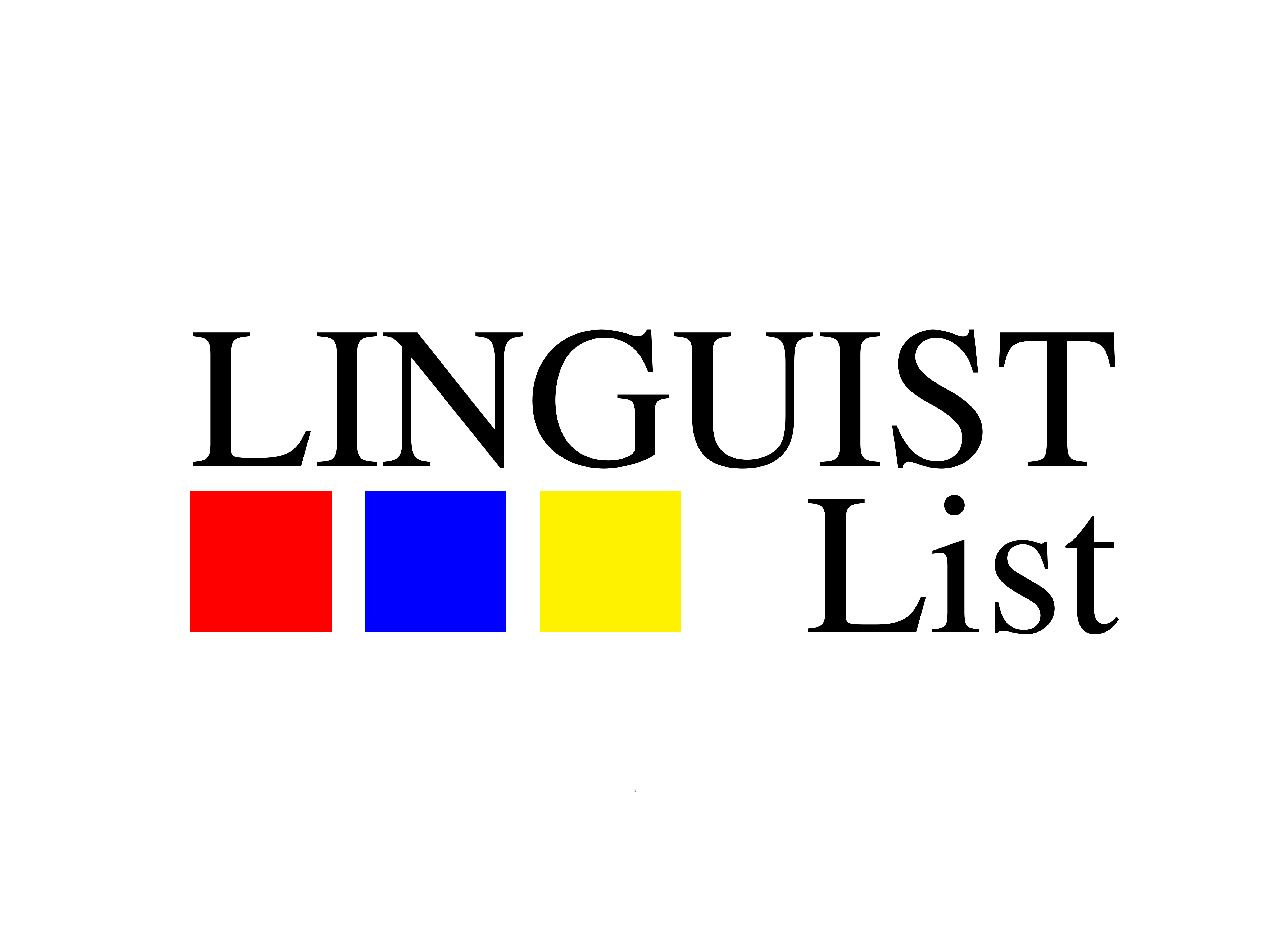Language in Fantastic Film Worlds:
Exploring Fictional Telecinematic Discourse
Workshop Abstract and Call for Papers
Chemnitz University of Technology (hybrid)
March 19–20, 2026
Films and television shows that depict alternative realities and fantastic universes are among the most popular genres worldwide, as underlined by the status of James Cameron’s Avatar (2009) as the highest-grossing movie to date (imdb.com). Fantastic films commonly show linguistic creativity and innovation, including idiosyncratic language use by exotic characters, so that these pop cultural discourses are a highly promising subject for linguistic study (Mandala 2010). The attribute fantastic is conceptualized here in a wide sense, referring to all genres that portray fictional characters in settings that blatantly deviate from everyday reality in a framework of “estrangement” (Adams 2017). Accordingly, the workshop is interested not only in science fiction (Rüdiger & Lange 2023) and fantasy (Castro 2024), but also in mystery, superhero, fairy tale, and horror movies (Schubert 2020), as well as in animated films and movie adaptations from comics (Sanchez-Stockhammer 2020). Although telecinematic research has been gradually gaining momentum in linguistics (see, for instance, Piazza et al. 2011; Beers Fägersten 2016; Bednarek et al. 2021; Sanchez-Stockhammer & Hoffmann, to appear 2024), fantastic films and their discursive characteristics have received surprisingly little attention as yet.
Filling this intriguing gap in research, this workshop aims to probe various facets of language use in fantastic films and TV shows (Bednarek 2018; Kozloff 2000). More specifically, we argue that four linguistic subdisciplines are particularly relevant for an in-depth exploration of language in the worlds of fantastic films:
- Cinematic stylistics investigates meaningful linguistic choices and stylistic markers that can be associated with fantastic genres and achieve specific contextual effects (Hoffmann & Kirner-Ludwig 2020).
- Pragmatics is concerned with innovative character speech and characterization with respect to (im-)politeness, communicative (non-)cooperation, conversational structure, or implied meaning (Locher & Jucker 2017) that transcend everyday situational contexts.
- Sociolinguistic studies may concentrate on creative varieties of English (Boberg 2021; Hodson 2014) or on the stereotypical representation of social or ethnic groups in fantastic settings.
- Multimodal studies reveal how visual storytelling is a constitutive part of telecinematic discourse and is often co-deployed with verbal language to create significant cinematic effects (Janney 2012; Wildfeuer 2014), such as suspense (Schubert 2023) or humour (Frobenius & Gerhardt, to appear 2024), and for the purpose of characterization (Bednarek 2023; Reichelt 2018).
While the workshop will centre on case studies of selected films and television shows within the fields and approaches outlined above, we also welcome contributions approaching the topic from a theoretical or methodological perspective. The abstracts should be in English (ca. 300 words plus references) and include the name(s) of the author(s), the title of the paper, the affiliation as well as postal and email address(es). The format will be 20-minute talks followed by 10-minute discussions. Please send your abstracts to all three organizers by October 31, 2024:

Call for papers
Text for callConference Highlights
Conference chairs: Christian Hoffmann (University of Augsburg), Christina Sanchez-Stockhammer (Chemnitz University of Technology), Christoph Schubert (University of Vechta)
Local organising committee: Cansu Akan & Isabell Nitschmann
Keynote Speakers:
Monika Bednarek (The University of Sydney)
Claudia Lange (Dresden University of Technology)
Roberta Piazza (University of Sussex)
References
References
Adams, Michael. 2017. The pragmatics of estrangement in fantasy and science fiction. In Miriam A. Locher & Andreas H. Jucker (eds.), Pragmatics of fiction, 329-363. Berlin: De Gruyter Mouton.
Bednarek, Monika. 2018. Language and television series. A linguistic approach to TV dialogue. Cambridge: Cambridge University Press.
Bednarek, Monika, Marcia Veirano Pinto & Valentin Werner. 2021. Corpus approaches to telecinematic language. Special Issue of International Journal of Corpus Linguistics 26(1).
Bednarek, Monika. 2023. Language and characterisation in television series: A corpus-informed approach to the construction of social identity in the media. Amsterdam: John Benjamins.
Beers Fägersten, Kristy (ed.). 2016. Watching TV with a linguist. Syracuse: Syracuse University Press.
Boberg, Charles. 2021. Accent in North American film and television: A sociophonetic analysis. Cambridge: Cambridge University Press.
Castro, Adrián. 2024. Telecinematic stylistics: Language and style in fantasy TV series. Language and Literature 33(1). 3-24.
Frobenius, Maximiliane & Cornelia Gerhardt. To appear 2024. Non-natural dialogue in comedy: Language as sound in the creation of multimodal humor. In Christina Sanchez-Stockhammer & Christian Hoffmann (eds.), Language and/in Film. Special issue of Anglistik.
Hodson, Jane. 2014. Dialect in film and literature. London: Palgrave.
Hoffmann, Christian & Monika Kirner-Ludwig (eds.). 2020. Telecinematic stylistics. London: Bloomsbury.
Janney, Richard W. 2012. Pragmatics and cinematic discourse. Lodz Papers in Pragmatics 8(1). 85-113.
Kozloff, Sarah. 2000. Overhearing film dialogue. Berkeley: University of California Press.
Locher, Miriam A. & Andreas H. Jucker (eds.). 2017. Pragmatics of fiction. Berlin: De Gruyter Mouton.
Mandala, Susan. 2010. Language in science fiction and fantasy: The question of style. London: Continuum.
Piazza, Roberta, Monika Bednarek & Fabio Rossi (eds.). 2011. Telecinematic discourse: Approaches to the language of films and television series. Amsterdam: John Benjamins.
Reichelt, Susan. 2018. The sociolinguistic construction of character diversity in fictional television series. Cardiff: Cardiff University dissertation. https://orca.cardiff.ac.uk/id/eprint/114837/
Rüdiger, Sofia & Claudia Lange (eds.). 2023. The language of science fiction. Special issue of Linguistics Vanguard 9(3).
Sanchez-Stockhammer, Christina. 2020. How comics communicate on the screen: Telecinematic discourse in comic-to-film adaptations. In Christian Hoffmann & Monika Kirner-Ludwig (eds.), Telecinematic Stylistics, 263-284. London: Bloomsbury.
Sanchez-Stockhammer, Christina & Christian Hoffmann (eds.). To appear 2024. Language and/in film. Special issue of Anglistik.
Schubert, Christoph. 2020. The visual discourse of shots and cuts: Applying the cooperative principle to horror film cinematography. In Christian Hoffmann & Monika Kirner-Ludwig (eds.), Telecinematic stylistics, 183-204. London: Bloomsbury Academic.
Schubert, Christoph. 2023. Tarantino’s eloquent villains: A pragma-stylistic approach to suspense. English Text Construction 16(2). 119-143.
Wildfeuer, Janina. 2014. Film discourse interpretation: Towards a new paradigm for multimodal film analysis. London: Routledge.

